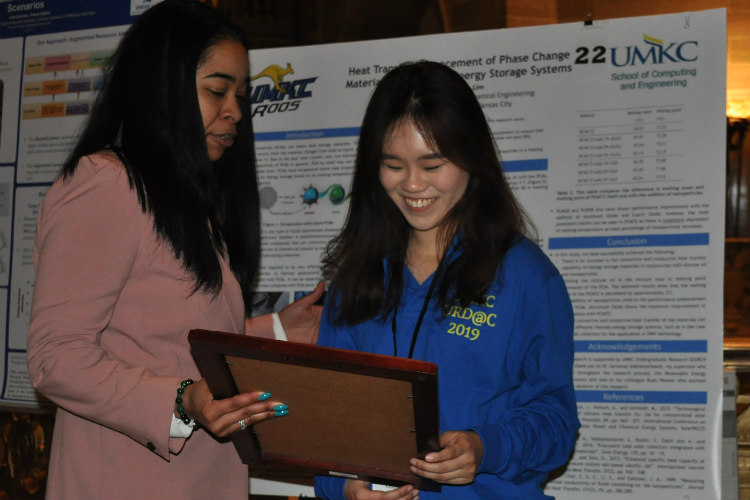Research isn’t solely for faculty and graduate students. At UMKC, undergraduates have researched the evolution of galaxies, helped develop more environmentally-friendly formulas for concrete, and studied the effects of disrupted sleep on the stress levels of college students.
UMKC encourages undergraduate students to conduct research as a key element of their bachelor’s degree program. It can play a critical role in gaining hands-on experience in your field of study, learning to think creatively and develop problem solving skills, gaining an understanding of research methods and ethics, and exploring potential careers. And as an undergraduate, you can do abroad, apply for undergraduate research and national fellowships, and earn academic credit for individual research and creative projects.
Here’s a step-by-step guide to launching your undergraduate research project:
1. Decide on your research area of interest.

What stimulates your curiosity? What do you enjoy reading and learning about? What questions do you have that don’t seem to have answers — yet? Look for faculty (see Step Two) who have explored similar topics or ideas, can help steer you in a productive direction and help you focus on something that is doable in one or two semesters of part-time research.
“Don’t be afraid to research a topic you don’t fully understand,” says Joseph Allen, an experienced undergraduate researcher majoring in biology and chemistry. “As long as you go in with an open mindset and are willing to put in the work required to achieve understanding, who knows what fascinating things may result?”
A good way to get a feel for undergraduate research is to explore EUReka! Courses (Experiences in Undergraduate Research). EUReka classes are offered in disciplines and departments from across the university. Students can search for EUReka classes in Pathway as an "attribute" of any section of a course.
2. Find a faculty mentor.

If you know a faculty member with experience in your field of interest, send them an email or catch them during office hours. If you don't have someone in mind, browse this list of undergraduate research contacts for suggestions. You can also browse the undergraduate research database to find faculty who share your interests. It includes faculty profiles as well as more specific information about their research projects and artistic endeavors.
“Find articles written by the faculty member you’re interested in, especially ones related to their current research, and thoroughly read them,” Allen advises. “It is so beneficial to walk into a conversation with a faculty member and be able to pull out copies of their articles, highlighted with notes in the margins, and ask questions about what they are working on.”
3. Ask for money to fund your research: Complete a SEARCH or SUROP application.

SEARCH grants (Students Engaged in the Arts and Research) provide up to $1,250 in reimbursable research expenses undertaken during the academic year; SUROP grants (Summer Undergraduate Research Opportunity) provide students with a $2,000 tuition grant and cover reimbursable expenses (up to $1,250) for projects undertaken during the summer session.
You can complete your SEARCH or SUROP application online.
The extensive opportunities – and support – for undergraduate research really set UMKC apart. It’s up to you to take the initiative to make it happen. If you’re willing to put in the time and effort, it’s a great way to add value to your undergraduate experience.

